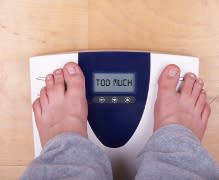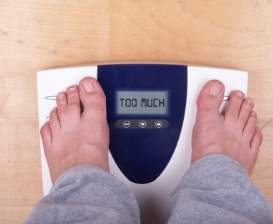When it comes to health and fitness, there is a lot that we can control. But there are also things that we can’t control. Unfortunately, many people think that they can’t control some of the things we very much can control.
We can’t control the fact that we age daily and we might have genes that can cause various illnesses and disease. Gender and family history are also things you can’t change. But time and again, people who come to seek advice and coaching in order to improve their health and wellness are full of misconceptions about what they can change:
- Through changing my daily habits and behaviors, what can be changed and what can’t be?
- If I change my eating habits, lose some weight, exercise and control my stress, what improvements can I make and what things are not under my control?
The two things that I hear the most from people are “There is nothing I can do, I have bad genes” and “I was born with a slow metabolism—I’ll never lose weight.”
Let’s first talk about “bad genes.”
Andrea came to see me several years ago, saying “I’ve tried everything and I think it must be my genes.” She proceeded to tell me about her overweight siblings and parents and their shared list of health problems. It is true that there might be some genetic component in her problems of being overweight and that there is a slight genetic component in type 2 diabetes, but most of her issues can be helped to a great extent by improving her habits.
Researchers at the Washington University School of Medicine in St. Louis first did a study on almost 40,000 people in the early 1990’s. They found that addictive genes had no impact on body weight. People were just as likely to be obese whether they came from a family with these bad genes or not.
But a follow-up study of 40,000 other subjects 10 years later was done, the picture was very different. Subjects were 30 percent-40 percent more likely to be obese if they had addictive genes in the family. And for women, the chance was 50 percent greater.
So, what changed? Our genes didn’t change in 10 years. You can’t change the genes you are born with, but you can change the genetic expression.
“Lifestyle choices powerfully influence genetic expression—and most important, they are passed on to children,” said Dr. Pamela Peek, MD. “Making proper choices in any situation is really key and whereas genes can have a big influence, ultimately it is your choice in any given situation that is the ultimate determinate.”
Andrea was convinced.
We began the process of taking on good health habits week by week and although it was a slow process, she lost weight and got her blood sugar down to good levels. She clearly had genetic tendencies, but was able to improve her situation in spite of that.
Naftali was a relatively young man but very overweight. His mother said the whole family suffers from a slow metabolism. I believed her but told her that a slow metabolism can be improved.
Having a good understanding of one’s own metabolism is a great place to start.
The term metabolism simply refers to the chemical processes that occur within the body to maintain life. These processes require energy, burn energy and produce energy, which significantly impacts each person’s fitness and weight-management outcomes. Interestingly, each person’s metabolism is different in terms of speed and effectiveness.
As mentioned before, your age, gender and genes can contribute to your metabolism, but lifestyle choices related to eating, physical activity and sleep also play significant roles. While you can’t change some of these factors, you can make better lifestyle choices, which will help increase the effectiveness of your metabolism, which will, in turn, help you achieve your health and fitness goals.
In order to speed up your basic metabolic rate is to build muscle through resistance training, to eat small meals more often, the main goals are to stay adequately hydrated, manage and reduce stress and get enough sleep. It also helps to avoid artificial sweeteners, eat hot and spicy foods and drink a few cups of green tea each day.
None of these are magic fixes by themselves. However, when combined with the first five tips mentioned, they can be effective.
Naftali began working on these behaviors and after several months he slowly began to lose weight. In his case, having enough patience was also a big part of his success. Yes, metabolism can be increased with the right amount of work focus and patience.
In conclusion, yes, there are things beyond our control. But we need to know that many things we might think are not in our control actually are. Aside from that, we have to work on the areas of our health that can be controlled and not give up just because some things might be stacked up against us. Making the effort to improve those areas of our life that CAN be controlled will “add hours to your day, days to your year, and years to your life.”
Alan Freishtat is an A.C.E. CERTIFIED PERSONAL TRAINER and a BEHAVIORAL CHANGE and WELLNESS COACH with over 19 years of professional experience. Alan is the creator and director of the “10 Weeks to Health” program for weight loss. He is available for private coaching sessions, consultations, assessments and personalized workout programs both in his office and by telephone and skype. Alan also lectures and gives seminars and workshops. He can be reached at 02-651-8502 or 050-555-7175, or by email at alan@alanfitness.com Check out the his web site –www.alanfitness.com US Line: 516-568-5027.
The words of this author reflect his/her own opinions and do not necessarily represent the official position of the Orthodox Union.


